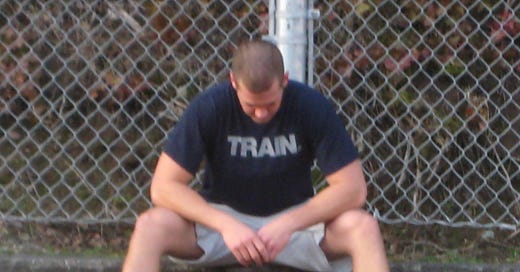I often get questions about improving recovery from training, as well as inquiries about my opinions of various methods claiming to improve recovery. These often include ice or epsom salt baths, cold or contrast showers, massage and massage guns, cupping, CBD, foam rolling, and so on.
First, we need to define recovery. How will we know when we’ve improved it or achieved it?
One possible metric is improvement from training, but now we’re also assessing training (not just recovery). If we see improvement from one week or month to the next, that suggests that our training is good and we are recovering from it so that adaptation can occur and performance can increase. This also means we need to be consistent enough in our training and overall approach so that we can compare one training session or test to another in similar conditions to evaluate progress.
Another possibility is a metric like heart rate variability (HRV). HRV technology measures the beat-to-beat variability in heart rate. Heart rate isn’t perfectly metronomic, but it shouldn’t be all over the place either. There’s a sweet spot of natural variability and response to stress (training or other) that indicates a fully functioning physiological system. Too much or too little variability suggests dampened performance somewhere in the system, which again could be too much training or too little recovery.
I often find that people aren’t using either of these methods, and are relying entirely on personal subjective feedback of muscle soreness, general fatigue or achiness, or emotional response to training.
For one, muscle soreness isn’t really anything other than muscles saying, “hi, that was new,” in response to a change in training. For another, this is expecting a lot of accuracy in self-assessment, and I’m also not sure it’s realistic for rowers to be able to train hard and not feel tired or sore as a natural response to hard training in a demanding full-body sport.
Attaching the subjective and objective helps us get a better answer here:
Tired/sore AND improving = body adapting to training
Tired/sore NOT improving = too much training or too little recovery
NOT tired/sore AND improving = the goal! Hold course until it stops
NOT tired/sore NOT improving = increase training
My opinion is that the only solid ways to improve recovery are nutrition (quality and/or quantity), sleep, managing training to progress gradually and not progress to too high of a point in volume/intensity, and reducing non-training stress where possible.
Everything else is placebo, very minor, or actually serving to reduce stress. If an activity (eg. yoga, ice-bathing, massage, etc.) is fun or social for you, then that’s probably reducing stress (and therefore contributing to recovery). If you hate it and it makes you anxious or tense, then that’s probably increasing stress and not contributing to recovery. I’ve yet to see this subjective element rigorously studied, and I think it has greater influence than the intervention itself.
More: What about “cooldowns”?
We know that nutrition, sleep, and managing training and non-training stress works. The burden of proof is on anything else to show that it “works,” whatever that means in the context of the individual or study. I’ll focus my efforts on the nutrition, hydration, sleep, and training management strategies that I know work. Meal plan and prep, manage time, get enough sleep, focus on the training, and reduce non-training stress where possible. There’s plenty there to keep us busy and we’ll see more reward on our efforts than chasing the latest silver bullet.
Please be aware that seeing things in the media or observing elite athletes is not proof of effectiveness. A lot of trendy technologies rely on paid advertising and sponsorships. I know, because I receive such solicitations in my junk email every week for trendy expensive gadgets. Even when they aren’t paid promoters, elite athletes (and coaches) are a superstitious bunch. No coach wants to take something away from an athlete when they believe it works, whether it’s lucky underpants, a pre-race meal, or a certain treatment. I won’t intervene as long as it isn’t causing anxiety or other problems, but I also won’t encourage anyone to join in just to take advantage of a placebo effect.





